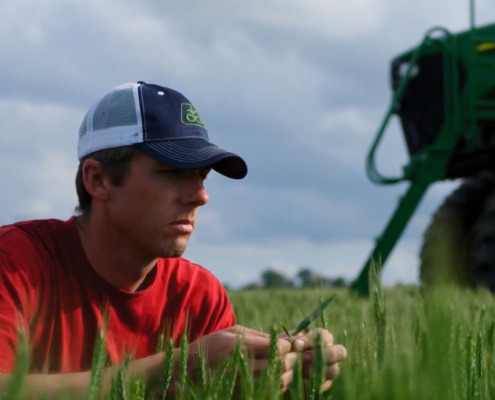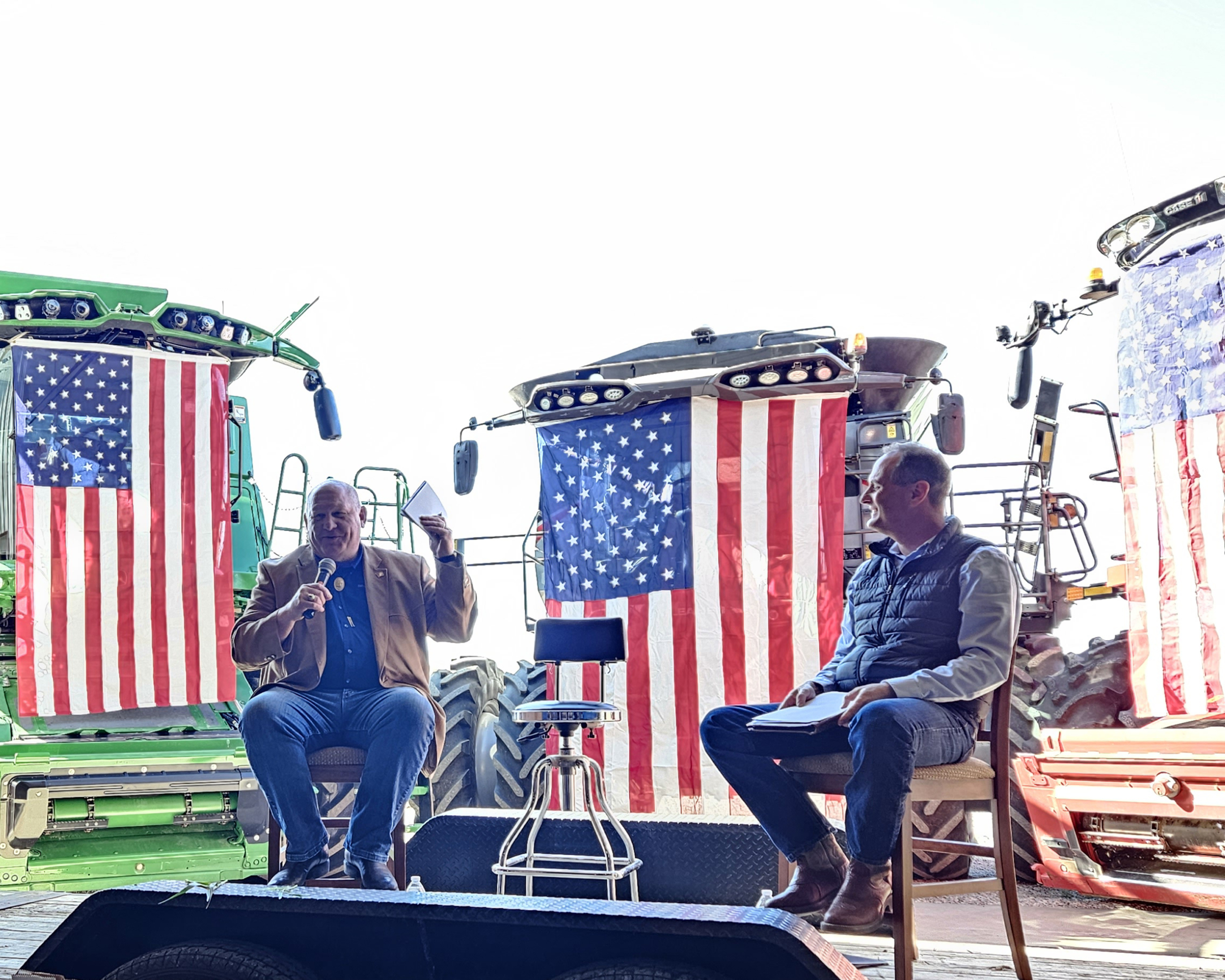Listening Session Reinforces Support for Key Farm Bill Programs Impacting U.S. Farmers and Their Global Customers
Between ceiling-high stacks of seed and against a backdrop of multi-colored combines, House Agriculture Chairman Glenn ‘GT’ Thompson (PA-15) and U.S. Representative Tracey Mann (KS-01) conducted a food and agriculture listening session in early May. The remarks revealed support for the future of market development programs, food aid assistance and the continued reliability of the U.S. wheat supply.
The listening session took place at the farm of Justin Knopf, immediate past president of the Kansas Association of Wheat Growers. Trade teams may recall visiting this machine shed in Saline County, where farmers, ranchers, agricultural producers and leaders in Kansas agriculture gathered to provide their comments and questions. The current version of the Farm Bill expires on September 30, 2023, so this session is one of many happening across the country.

Kansas Farmer Justin Knopf hosted a Farm Bill listening session in early May. “When we think about being the most reliable, consistent supplier of grain around the world to our international customers, crop insurance is an important part of our ability to do that,” Knopf said.
Farm Safety Net
“We heard a lot about the importance of the U.S. farm safety net from a production standpoint to feed not just consumers here in the U.S., but around the world,” said USW Vice President of Policy Dalton Henry.
Behind the shed, Knopf’s wheat crop is in better shape than many, but still below average. Knopf started his welcome by recognizing that thousands of Kansas wheat acres will not be harvested due to extreme drought conditions – a point repeated by numerous commentators. For these producers, crop insurance is a vital Farm Bill program, benefiting both farmers and customers that rely on a steady supply of U.S. wheat.
“When we think about being the most reliable, consistent supplier of grain around the world to our international customers, crop insurance is an important part of our ability to do that,” Knopf said. “Because in the wake of a disaster, it allows us the means to move forward in putting in that next crop that hopefully will fare better the following year.”
The Farm Bill provides direct support to overseas markets through food aid assistance, which both lawmakers and commenters expressed support for during the listening session. Kansas farmers, in particular, feel a strong tie to programs like USAID Food for Peace, the roots of which originated in Kansas.
“I’m very proud of the legacy of Food for Peace and food aid,” Knopf said. “We can stand as a country that is here to support people around the world that are experiencing hard, difficult times and provide food as a beacon of hope and freedom.”
Vital Export Market Development
Both lawmakers also recognized the importance of two other internationally focused Farm Bill programs – the Market Access Program (MAP) and the Foreign Market Development (FMD) program. These public-private partnerships provide competitive grants for export development and promotion activities to non-profit farm and ranch organizations, like USW, that contribute funds from checkoff programs and industry support.
Both programs need more investment to strengthen their effectiveness as MAP’s authorized funding has not changed since 2006 and FMD funding has remained the same since 2002. Congressman Mann is helping lead the effort to double the funding for this pair of agricultural export market development programs administered by the USDA’s Foreign Agricultural Service (FAS). He was a lead sponsor for the Agriculture Export Promotion Act (H.R. 648), which is currently making its way through the U.S. political process, along with the Senate equivalent – the Expanding Agricultural Exports Act (S. 176).
In the end, export promotion programs, food aid and crop insurance were just a few topics discussed at the Kansas listening session. Still, supportive comments from lawmakers and Kansans alike will help ensure the next Farm Bill supports not only U.S. farmers, but also their global customers.
By Julia Debes


